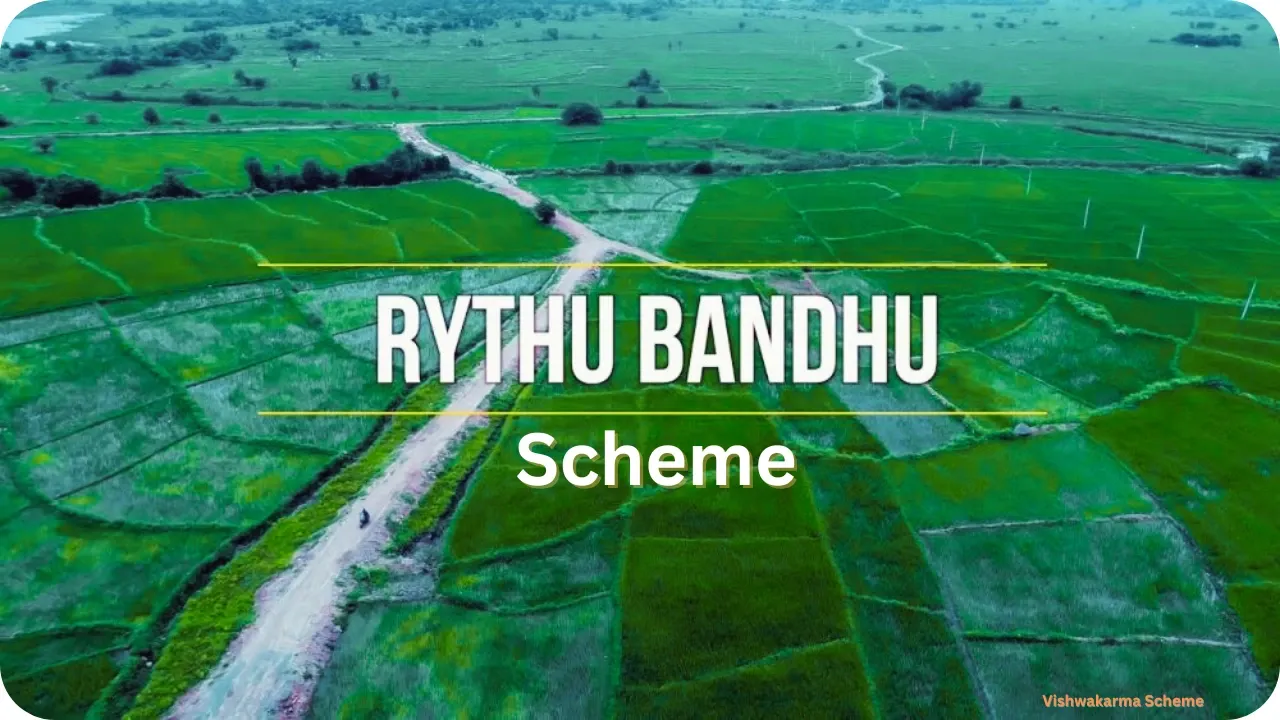The Rythu Bandhu Scheme is a pioneering initiative by the Telangana government, designed to provide direct financial assistance to farmers. This one-of-a-kind program is often regarded as a game-changer in India’s agricultural landscape, addressing the critical financial needs of farmers and fostering a more self-reliant agricultural economy.
Whether you’re a farmer looking to benefit from this scheme, an agriculture enthusiast, or someone interested in public policy, understanding the Rythu Bandhu Scheme will provide insight into its transformative impact.
What Is the Rythu Bandhu Scheme?
Launched in 2018, the Rythu Bandhu Scheme, also known as the “Farmers’ Investment Support Scheme,” provides financial support to farmers at the beginning of each agricultural season. The primary objective is to ease the financial burden farmers face while preparing for cultivation, reducing reliance on loans.
Under this scheme, the Telangana government offers ₹10,000 per acre annually, split into two installments for Rabi and Kharif seasons. Unlike traditional subsidies tied to specific agricultural inputs, the scheme provides direct, unconditional cash transfers to farmers.
Key Benefits of the Rythu Bandhu Scheme
This Scheme stands out for its holistic approach to empowering farmers. Here are its major benefits:
- Financial Independence: Farmers receive cash directly into their bank accounts, enabling them to make independent decisions about resource allocation.
- Reduction in Debt: By offering upfront financial aid, the scheme minimizes farmers’ dependence on high-interest loans from informal lenders.
- Improved Agricultural Productivity: Farmers can use the funds to invest in quality seeds, fertilizers, and equipment, boosting yield and profitability.
- Economic Security: Seasonal financial assistance ensures stability for farmers, safeguarding their livelihoods.
- Encouraging Crop Diversification: With flexible cash support, farmers are free to experiment with diverse crops instead of sticking to government-mandated options.
Eligibility for the Rythu Bandhu Scheme
This scheme has clearly defined eligibility criteria to ensure that the right beneficiaries receive aid:
- Land Ownership: Only land-owning farmers in Telangana are eligible. Tenant farmers and sharecroppers are excluded.
- Geographical Limit: Beneficiaries must reside in Telangana, and their agricultural land must also be within the state.
- Updated Records: Land ownership records should be updated and verified in the Dharani portal or the state’s land records database.
It’s important to note that institutional landowners and non-farmers are excluded from the scheme.
How the Rythu Bandhu Scheme Works
- Identification of Beneficiaries: The government identifies eligible farmers through digitized land records.
- Direct Benefit Transfer (DBT): Funds are directly transferred to beneficiaries’ bank accounts before each agricultural season.
- Real-Time Monitoring: Authorities monitor the scheme’s progress through a centralized digital platform, ensuring minimal delays and discrepancies.
Farmers can access updates and details about their financial support through the Dharani Portal, which also facilitates grievance redressal.
Impact of the Rythu Bandhu Scheme
Since its inception, this Scheme has created a profound impact on Telangana’s agricultural landscape:
- Boosted Farmers’ Confidence: The scheme has provided financial security, encouraging more farmers to pursue agriculture without fear of financial ruin.
- Reduced Suicide Rates: Telangana has witnessed a noticeable decline in farmer suicides, as financial stress has eased for many.
- Strengthened Rural Economy: By injecting substantial funds into rural areas, the scheme has spurred local economic growth.
- Inspiration for Other States: The success of Rythu Bandhu has inspired similar initiatives in states like Odisha (KALIA) and West Bengal (Krishak Bandhu).
Challenges and Criticisms of the Rythu Bandhu Scheme
Despite its success, the Rythu Bandhu Scheme is not without challenges:
- Exclusion of Tenant Farmers: The scheme benefits only land-owning farmers, leaving out tenant farmers and agricultural laborers who form a significant part of the farming community.
- Misuse of Funds: Without accountability for how the funds are utilized, some farmers may not invest the money in agriculture.
- Rising Fiscal Burden: The financial outlay for the scheme places significant pressure on the state’s budget, raising concerns about long-term sustainability.
- Inequality in Land Ownership: Farmers with larger landholdings receive disproportionately higher benefits compared to small and marginal farmers.
To address these challenges, experts suggest expanding the scheme to include tenant farmers and implementing mechanisms for tracking fund utilization.
Technology in Rythu Bandhu: Dharani Portal
The Dharani Portal plays a pivotal role in ensuring the scheme’s transparency and efficiency. This comprehensive online platform facilitates:
- Land Record Verification: Farmers can verify and update their land ownership details.
- Application Tracking: Real-time updates about fund disbursement and status.
- Grievance Resolution: Farmers can lodge complaints and track their resolution online.
Such digital integration ensures that the scheme remains streamlined, reduces fraud, and boosts farmer trust.
Comparison with Other Schemes
When compared to similar agricultural support programs in India, this Scheme stands out:
| Scheme | State | Annual Assistance | Target Beneficiaries |
| Rythu Bandhu | Telangana | ₹10,000 per acre | Land-owning farmers |
| KALIA | Odisha | ₹4,000 per annum | Small, marginal, and landless farmers |
| PM-KISAN | Pan-India | ₹6,000 per annum | Small and marginal farmers |
The direct benefit transfer approach of Rythu Bandhu ensures immediate impact, setting it apart from other schemes that may involve intermediary processes.
Conclusion
The Rythu Bandhu Scheme has proven to be a lifeline for farmers in Telangana, providing them with the financial freedom to sustain and enhance their agricultural practices. While challenges like exclusion of tenant farmers persist, the scheme’s overall impact on improving farmers’ livelihoods and boosting the rural economy is undeniable.
As India continues to grapple with the complexities of agricultural reform, the Rythu Bandhu Scheme serves as a model for effective policy making. By addressing gaps in implementation and expanding its reach, the scheme has the potential to become a benchmark for farmer welfare programs nationwide.
Empowering farmers is the key to sustaining India’s agricultural backbone, and this Scheme is undoubtedly a step in the right direction.
Read More Blogs Click Here Mahalakshmi Scheme : महिलाओं और बेटियों के सशक्तिकरण की पहल
